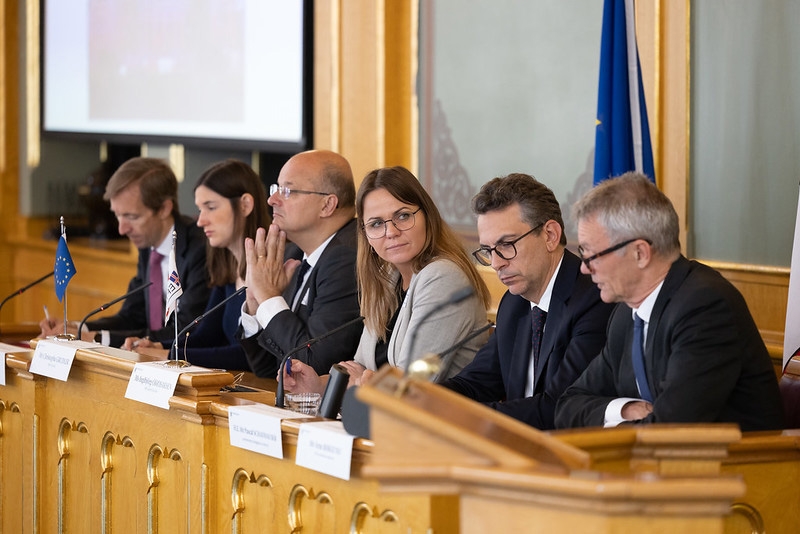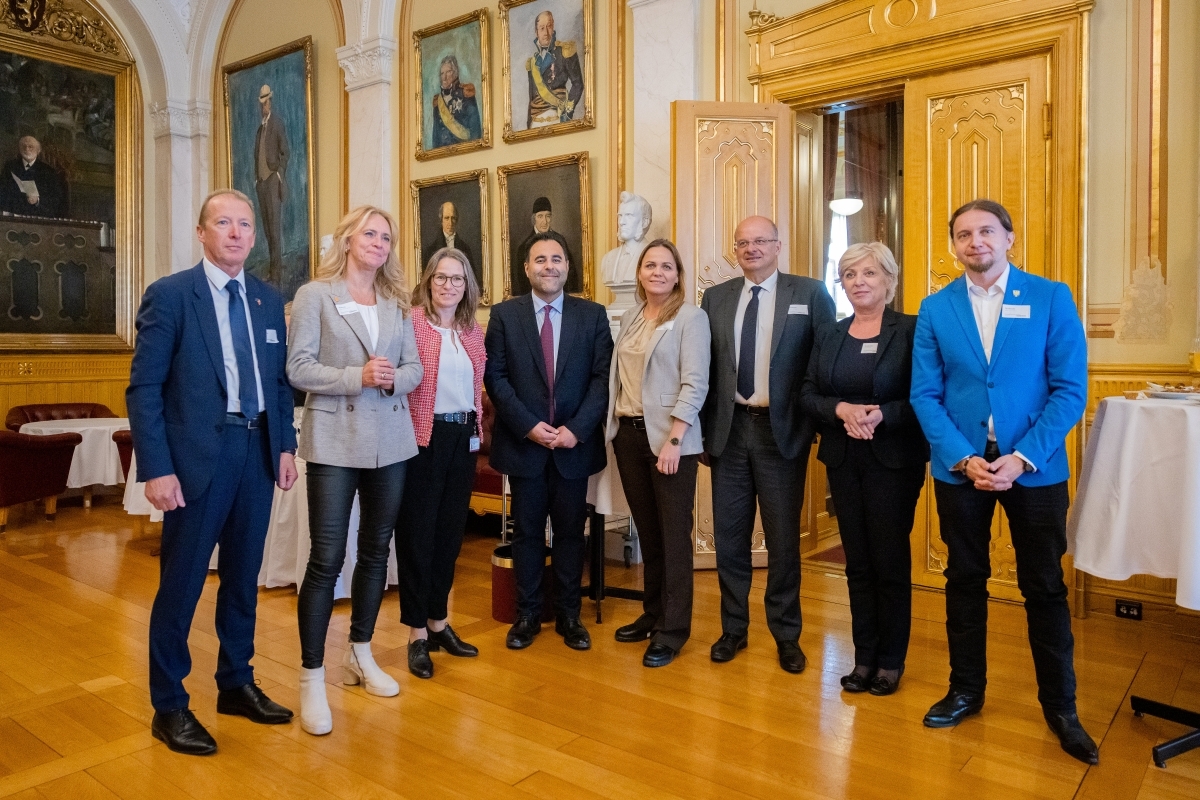
EEA Joint Parliamentary Committee convenes in Oslo

On 24-25 May 2022, EFTA parliamentarians met jointly with their counterparts of the European Parliament in the format of the EEA Joint Parliamentary Committee (EEA JPC). Members discussed the war in Ukraine and its impact on the EEA, initiatives to fast track the green transition and the proposal on artificial intelligence as part of the EU/EEA digital agenda.
The meeting was co-chaired by Christophe Grudler, Member of the European Parliament’s delegation for EFTA countries and the EEA (D-EEA) and representing the EEA JPC President, and by Ingibjörg Ólöf Isaksen (Member of the Icelandic Parliament) and Vice-President of the EEA JPC.
Members first discussed the war in Ukraine, the united reaction of the EU and EFTA States, and the possible impact of the crisis on the EEA.
Eivind Vad Petersson Norway’s State Secretary for Foreign Affairs explained Norway’s cooperation with the EU during the recent Ukraine crisis and emphasised at the meeting that the EU and the EFTA States had a: “common commitment to open societies and open economies.” The Committee also heard from Ukrainian Parliamentarian, Vadym Halaichuck. He underlined that: “it was not only Ukraine that was attacked, but also the whole civilised world.”
The 57th #EEA Joint Parliamentary Committee meeting has started in #Stortinget. Parliamentarians from the #EEA #EFTA countries (🇮🇸, 🇱🇮, and 🇳🇴) and the @europarl , attends the meeting in #Oslo on 23-25 May.
— EFTA Secretariat (@EFTAsecretariat) May 24, 2022
Topics on the agenda include #Fitfor55 and the war in #Ukraine. pic.twitter.com/pOihRngZun
The committee discussed the EU proposals for a green transition and took stock of the current legislative processes at EU level relevant for the EEA such as the European Carbon Adjustment Mechanism (CBAM) and the revision of the Renewable Energy Directive (RED II).
State Secretary of the Norwegian Finance Ministry, Erlend Trygve Grimstad stated that “the challenge will be to ensure that our efforts to reduce emissions in Europe will result in a significant reduction in global emissions, and not a relocation of emissions to other jurisdictions.” MEP Karin Karlsbro who is INTA rapporteur on CBAM reiterated that: “The idea of CBAM is to create something in the absence of a global tax on emissions.”
The EEA JPC also met with Norway’s representatives of the industry offering innovative solutions and appliances for the future such as blue hydrogen, carbon capture and storage, green ammonia, and clean battery solutions.
“Carbon capture and storage (CCS) is extremely important for the decarbonisation of the economy and in particular heavy industries and to maintain the industrial base and jobs in Europe,” stated Irene Rummelhoff, Executive Vice President of Marketing, Midstream and Processing, Equinor.
Today, the #MPs visited the @Equinor offices in #Norway 🇳🇴. At their premises they discussed the important topics of #EEA energy cooperation to deliver secure energy for the transition. pic.twitter.com/z2e0uQj6B1
— EFTA Secretariat (@EFTAsecretariat) May 24, 2022
Representatives of the EEA executive bodies responsible for the good implementation and functioning of the EEA briefed the members on the latest developments since the last meeting that took place on 25 August 2021. Ms Mariana Duque, Chair of the EFTA Working Party, representing the French Presidency of the Council of the EU and subsequently the EU Chair of the EEA Council; Mr Nicolas von Lingen, EU Chair of the EEA Joint Committee; Ambassador Pascal Schafhauser, EFTA Chair of the EEA Joint Committee and representing the EFTA Chair of the EEA Council; and Mr Arne Røksund, President of the EFTA Surveillance Authority made a statement and exchanged views with the parliamentarians.
Mr Nicolas von Lingen from the European Commission underlined that “The EEA is the instrument and vehicle on which we in the EU have been able to develop the most deep and integrated relationship we have with third countries.” Ambassador Pascal Schafhauser, EFTA Chair of the EEA Joint Committee, remarked “Let me confirm that our joint priority for the months ahead will be to reduce further the number of legal acts awaiting incorporation into the EEA Agreement.”
The EEA JPC adopted a resolution on the Annual Report of the EEA Joint Committee on the functioning of the EEA in 2021.
The Committee then discussed another EU legislative proposal relevant for the EEA: the Artificial Intelligence Act. Brando Benifei, rapporteur for Committee on Internal Market and Consumer Protection (IMCO) outlined the state of play of discussions in the European Parliament and the outlook for negotiations with the Council. “The European Parliament wants a regulation on artificial intelligence that relies on European values. We will look closely at exceptions on prohibited applications of AI in law enforcement proceedings to avoid any abuse”, stressed Mr Benifei.
Ms Liz Helgesen, EFTA co-chair of the EEA Consultative Committee, introduced the resolution and report on “Challenges and opportunities of greater use of artificial intelligence in the working life” that had been adopted on 11 May in Bergen.
EEA JPC members finally discussed the latest developments in the EU’s relations with both Switzerland and the UK.
Ms Tsvetelina Pentkova, Vice-Chair of the EP’s Standing Delegation to the EU-UK Parliamentary Partnership Assembly, Member of the European Parliament, joined the meeting and provided the EEA JPC with a background on the latest developments on relations between the UK and the EU. She stated that “The EU has reiterated that they will not renegotiate the Northern Ireland Protocol.”
The EEA Joint Parliamentary Committee is a joint forum composed of members of the national parliaments of the EEA EFTA States and Members of the European Parliament (MEPs). Its mandate is to contribute – through dialogue and debate – to a better understanding between the EU and the EFTA States in the fields covered by the EEA Agreement.
Find photos from the EEA JPC here.

Photo: Stortinget.